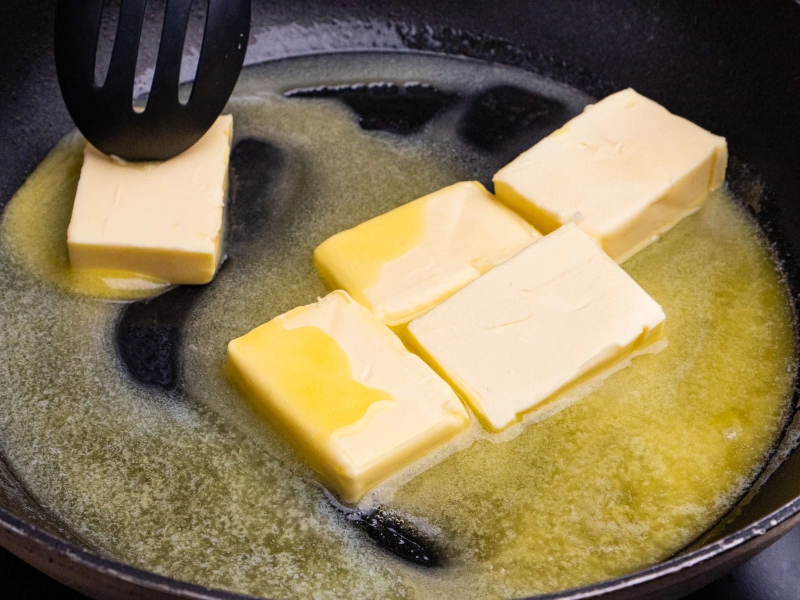Advertisement
What are the best dairy-free substitutes for milk in baking?
Water and butter; nut milk; soy milk; oat milk; rice milk; dairy-free yoghurt; banana milk; canned coconut milk; flax milk are the best dairy-free substitutes for milk in baking. See further information about each here.
1. Water and Butter

Advertisement
Particularly in recipes calling for pie or cookie dough, using water and butter can be a great substitute for milk. When you wish for a flaky and soft texture without depending on milk, this approach is quite helpful. Dough recipes call for milk to add moisture and fat, but you can still get comparable results if you substitute water and butter. The secret is to keep the dough's integrity by applying appropriate ratios.
Remember that water alone might occasionally produce a drier dough, which may collapse while handling, when replacing milk with water. Melted butter is really vital in order to offset this. Apart from improving taste, the butter's fat helps the dough to be soft. One decent rule is to add one tablespoon of melted butter for every cup of water used. This mix guarantees that your dough stays malleable and simple to work with, so preserving the fat content that milk would usually offer.
For instance, you would use one cup of water and add one tablespoon of melted butter if the recipe called for one cup of milk. This little change can help you produce dough with the correct consistency and taste sensation. The end effect is a beautifully baked pie or cookie that equals those produced with conventional milk. Furthermore, depending on water and butter could be a more affordable option, particularly for people who might not have milk on hand or aim to cut dairy intake.
This alternative has still another benefit in terms of flexibility. Beyond only pie and cookie dough, a variety of dishes call for water and butter. You might use this mix, for instance, in waffles, pancakes, and even some bread recipes. The richness of the butter mixed with the water produces a well-balanced mixture that might improve the general quality of your baked products by means of hydration from the water.
It's also important to keep in mind that using this mix could somewhat affect the flavour character of your final goods when compared to milk. The difference is usually small, though, and many people might not even realise it—especially when tastes from other ingredients in the recipe come into effect. Depending on the meal you are making, flavoured butter—such as garlic butter or herb-infused butter—may help you improve the taste even more.
All things considered, especially for doughs, water and butter make a useful and efficient replacement for milk in baking. Excellent outcomes can be obtained while preserving the intended texture and taste of your baked products by precisely balancing the proportions of every ingredient. For those wishing to forgo dairy without compromising quality in their dishes, this substitute presents a flexible choice.
